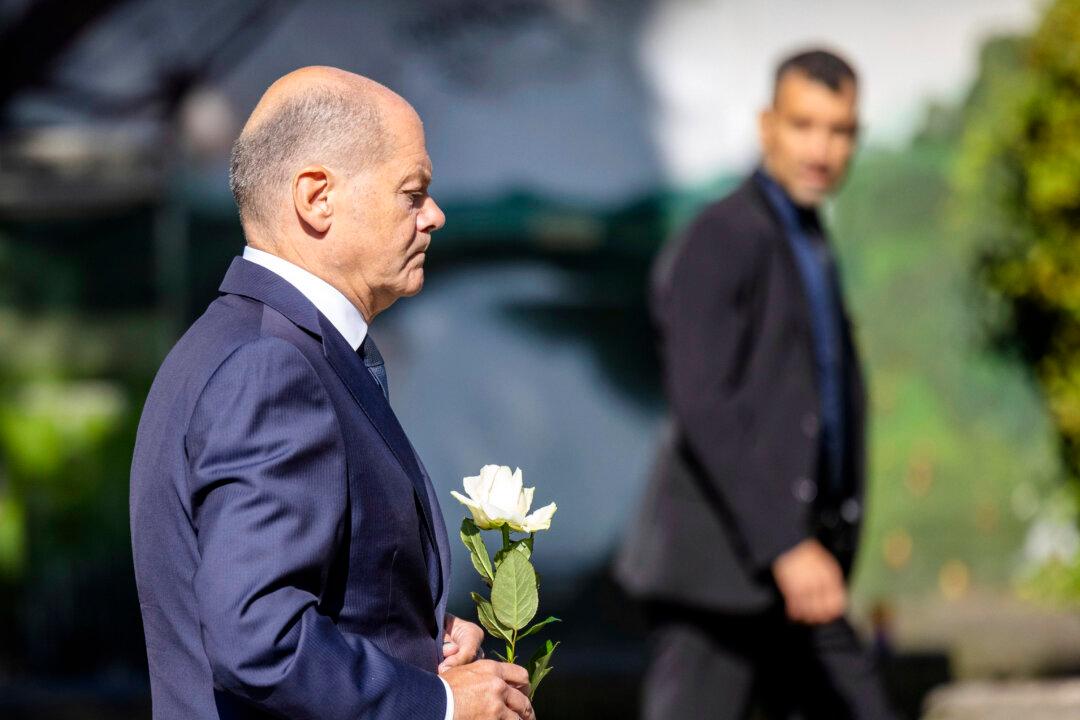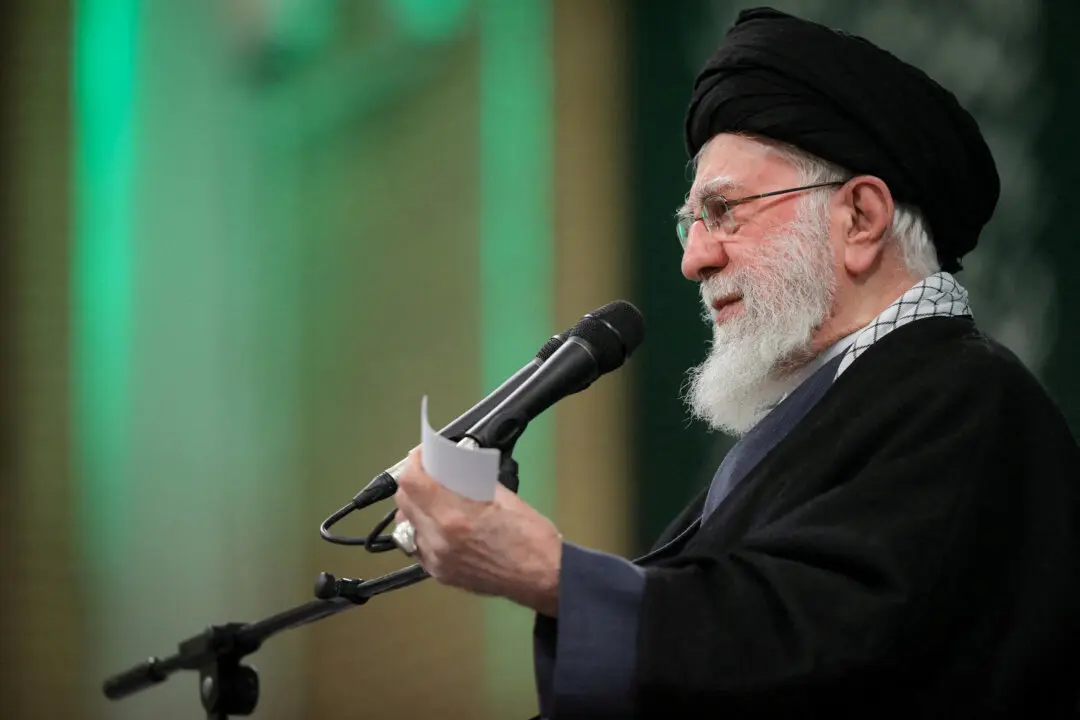German Chancellor Olaf Scholz promised on Aug. 26 to increase deportations and strengthen knife laws as he visited the scene of a mass stabbing in Germany.
Scholz was paying his respects in Solingen, North Rhine-Westphalia, after the Aug. 23 attack, allegedly carried out by a suspected Islamic extremist from Syria. Three people were killed, and eight were wounded.





